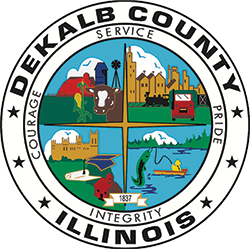Understand the Property Tax Cycle
Property Tax and Assessment Cycle

Property Taxes and assessed values can be a confusing part of home ownership. The following steps break down the entire process to help explain the property tax cycle.
STEP 1: LOCAL TOWNSHIP ASSESSORS Township Assessors are required to value all real estate within their township. They are required to assess at one-third of the fair cash value of the property, as determined by the Department’s sales ratio studies for the 3 most recent years preceding the assessment year, adjusted to take into account any changes in assessment levels implemented since the data for the studies were collected.
STEP 2: STATUTORY LEVEL OF ASSESSMENT Each tract or lot of property shall be valued at 33 1/3% of its fair cash value.
STEP 3: SUPERVISOR OF ASSESSMENTS AND BOARD OF REVIEW Once the Township Assessors have valued all property, these values are certified to the Supervisor of Assessments who is required by state law to review their assessment rolls for errors, apply equalization factors, certify assessed values, mail assessment notifications to the property owners and publish those changes in the local newspaper. Property owners have 30 days from the newspaper publication date to file an official protest of assessed value with the Board of Review.
STEP 4: PROPERTY TAX LEVY By state law, all local governments must submit a property tax levy by December of each year. This is basically the amount of money each taxing body requires to be collected from property taxes. This is the most important part of the Property Tax Cycle and most people do not understand this levy process.
What it means: Per state law, taxing bodies are guaranteed to receive the revenue from property taxes as long as it does not exceed the previous year’s request by more than the 5% tax cap or the cost of living, whichever is lower. Property tax revenue will remain the same regardless of assessed values.
Therefore: If all property within the taxing districts lose 10% market value and the assessed values are lowered by 10%, all property tax bills would remain the same.
STEP 5: COUNTY CLERK When the Board of Review has finalized all of the appeals in the Townships, they are certified to County Clerk’s office. The County Extension Clerk will calculate the new tax rates for each taxing district.
STEP 6: COUNTY TREASURER Once the County Clerk has calculated tax rates, they are sent to the County Treasurer who is responsible by state law to create and mail property tax bills.
STEP 7: COLLECTING PROPERTY TAXES The Treasurer collects all money due and distributes any levied amounts to each taxing district.
